On June 13 in Paris, the Health Club of the Association for Honoring Vietnamese Culture (APCV) organized an international conference with the theme " Digital technology strategy and Artificial Intelligence for health."
Held in a combination of in-person and online formats, the event attracted the participation of many leading experts from France, UK and Vietnam.
The event is not only an opportunity to discuss breakthrough advances in the fields of digital health and Artificial Intelligence (AI), but also opens up potential cooperation between Vietnam and other countries.
Digital technology and AI are creating a real revolution in the global healthcare industry.
According to experts attending the conference, the world is witnessing a transition from the traditional healthcare model to "smart healthcare," where data and algorithms play a central role in diagnosing, treating and preventing diseases.
Dr. Tran Van Xuan, Chairman of Brain-Life Company (UK), presented on brain-computer interface (BCI) technology combined with AI to detect mental health problems early and increase labor productivity.
“Your brain has its own voice, and BCI-AI technology can listen to those signals to support you,” Mr. Xuan shared, emphasizing the great potential of applying this technology in the working and learning environment.
In the field of medical education, Associate Professor, Dr. Nguyen Viet Nhung, Dean of the Faculty of Medicine, University of Medicine and Pharmacy, Vietnam National University, Hanoi (VNU), shared about the digital transformation strategy in medical education in Vietnam.
He said that to become a developed country by 2045, Vietnam has identified the need to integrate AI and digital technology into the training of future generations of doctors.
"AI is not just a support tool but a foundation that future doctors must be equipped with," Professor Nguyen Viet Nhung emphasized.
A survey at VNU found that 68% of medical lecturers believe that AI improves teaching quality through tools such as ChatGPT, Tome and SlidesAI, however 72% still lack confidence in using these technologies, indicating an urgent need for systematic training.
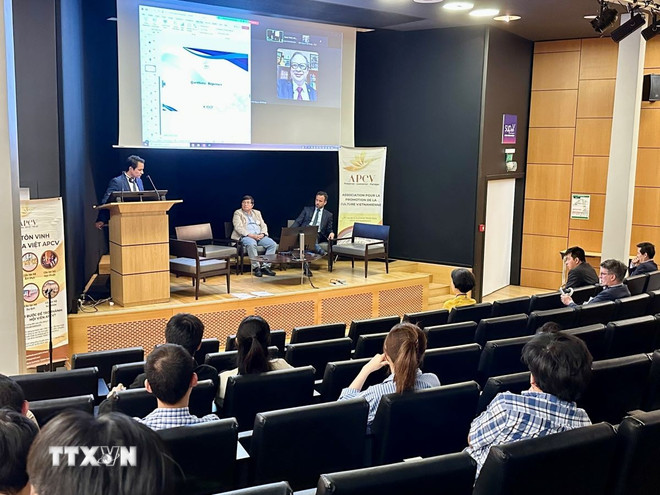
From a clinical practice perspective, Mr. Alexandre Drezet, Innovation Director at Foch Hospital (France), presented practical experience in implementing digital technology at the hospital. From online medical examinations with more than 5,900 remote examinations (+9%) and 6,000 remote monitoring cases (+250%), to the application of generative AI to automate medical record recording, Foch Hospital has demonstrated the practical effectiveness of technology.
“Innovation is our responsibility to build data warehouses, save time, improve lives. It is time to put pilot projects into real impact,” Mr. Drezet affirmed.
He also shared about the "AI committee" governance model that includes representatives from many different departments in the hospital, from medical to administrative, to ensure coordination and information transparency when deploying AI solutions.
In the field of drug development, Professor Philippe Moingeon, a former researcher at Harvard Medical School, sheds light on how AI is revolutionizing the drug development process. AI is helping to shorten the time from 5-7 years to just 2 years for the new drug discovery phase.
“There are currently 120-150 AI-designed drugs in human trials, with some early promising results,” Professor Moingeon shared.
Despite the many advantages, speakers also said that the implementation of AI technology in healthcare still faces a major cost barrier.
Dr. Tran Van Xuan frankly pointed out that the "cheapest" BCI (Brain-Computer Interface) device currently costs 1.5 times the average monthly salary in Vietnam, making the "poverty-mental health cycle difficult to break."
However, he is also optimistic that with production in Vietnam and technology optimization, the cost of BCI devices can be reduced to about 100 USD, suitable for millions of Vietnamese people.
Data security and privacy are also major concerns in the application of these modern technologies.
“The legal barriers are important but they are also too strict,” said Alexandre Drezet, referring to EU privacy regulations in this area, stressing the importance of creating an appropriate legal framework. Another challenge is the conservative nature of many health professionals, who are wary of change.
“Many professionals can be skeptical about using new tools, and some are reluctant to try these solutions,” said Drezet, sharing his experience implementing technology in hospitals. He said overcoming this requires a comprehensive information and training strategy, along with demonstrating the technology’s real-world effectiveness.
The France-Vietnam cooperation in the field of digital health has great potential thanks to the perfect complementarity between the two countries. France possesses advanced technology, rich experience in research and a modern healthcare system. Vietnam has a young population with a "mobile-first" culture (prioritizing mobile devices), creating opportunities to "get ahead" of technology with low-cost mental health solutions for low-income people. Professor Nguyen Viet Nhung said that VNU has signed a cooperation agreement with Université Paris-Saclay, especially with the Faculty of Medicine and the Faculty of Pharmacy.
“We have two PhD candidates who will come to the Faculty of Pharmacy in September 2025 to research and apply technology at our university,” he shared about specific steps in educational cooperation.
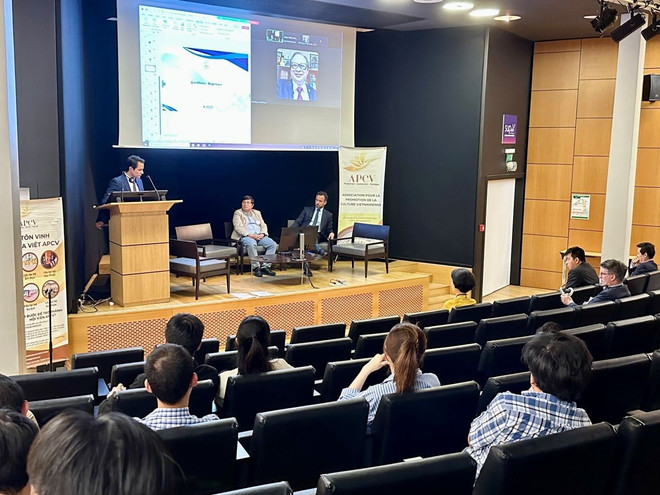
Professor Vincent Galand at ESCP Business School and Grenoble-Alpes University, stressed the importance of expanding cooperation: "We have expertise that can be shared widely with the whole world. Vietnam is starting to invest heavily in this field, and I hope France will be one of Vietnam's key partners in this digital revolution and artificial intelligence."
Dr. Tran Van Xuan proposed the cooperation model "Make in Vietnam-European quality-Worldwide market", taking advantage of Vietnam's cost advantages and young talent along with Europe's technology and commercialization experience.
"We look forward to becoming part of the France-Vietnam partnership in the field of digital healthcare," Mr. Xuan affirmed.
A key point highlighted during the workshop was the transition from Industry 4.0 (which focuses on automation and efficiency) to Industry 5.0 (which is human-centered and resilient). This is particularly important in the healthcare sector, where technology must serve to improve the quality of human life.
On this occasion, experts proposed to the government and stakeholders many recommendations on policies and future prospects such as supporting an open ecosystem for neurotech innovation; funding innovation and development of mental-tech and public-private partnerships; encouraging organizations to participate in BCI pilot programs; and bringing technology to the forefront of the national digital health strategy.
At the conference, speakers all affirmed that the world is facing a historic turning point in the healthcare industry. The application of AI and digital technology is no longer a future vision but has become the present, with the first positive results recorded from many different countries and organizations.
France-Vietnam cooperation in this field has great potential, not only bringing economic benefits but also contributing to solving global health challenges. By combining advanced French technology with the dynamic Vietnamese market, both countries can become pioneers in the digital health revolution.
As Vietnamese Ambassador to France Dinh Toan Thang emphasized at the conference: "In a world facing many health challenges, the exchange of knowledge and experience is more necessary than ever. Scientific and technological cooperation is an essential lever to improve health systems, for the benefit of peoples."
The future of healthcare lies not only in technology, but in how we use technology to put people at the center of all healthcare solutions. This conference has opened a new chapter in the France-Vietnam cooperation relationship, promising important breakthroughs in the coming time./.
Source: https://www.vietnamplus.vn/toa-dam-phap-viet-ve-ung-dung-cong-nghe-so-va-ai-trong-cham-soc-suc-khoe-post1044255.vnp



![[Photo] 60th Anniversary of the Founding of the Vietnam Association of Photographic Artists](/_next/image?url=https%3A%2F%2Fvphoto.vietnam.vn%2Fthumb%2F1200x675%2Fvietnam%2Fresource%2FIMAGE%2F2025%2F12%2F05%2F1764935864512_a1-bnd-0841-9740-jpg.webp&w=3840&q=75)
![[Photo] National Assembly Chairman Tran Thanh Man attends the VinFuture 2025 Award Ceremony](/_next/image?url=https%3A%2F%2Fvphoto.vietnam.vn%2Fthumb%2F1200x675%2Fvietnam%2Fresource%2FIMAGE%2F2025%2F12%2F05%2F1764951162416_2628509768338816493-6995-jpg.webp&w=3840&q=75)





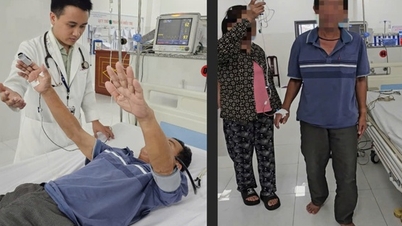




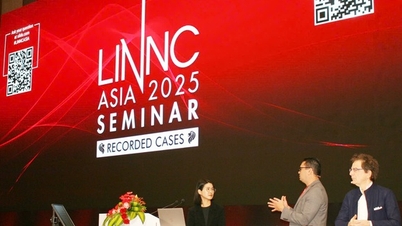






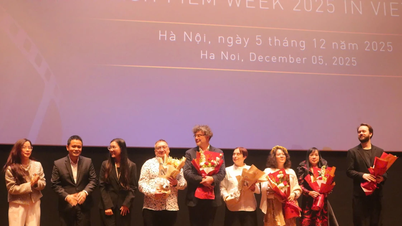


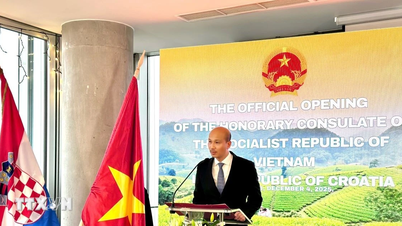










































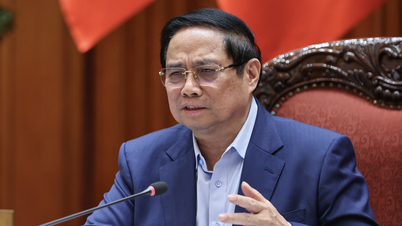








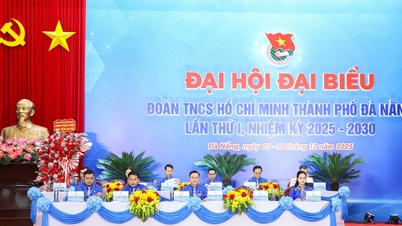




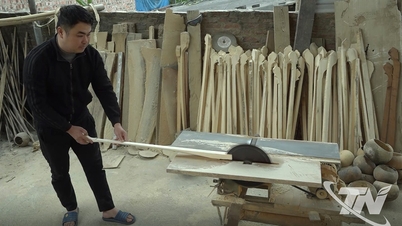


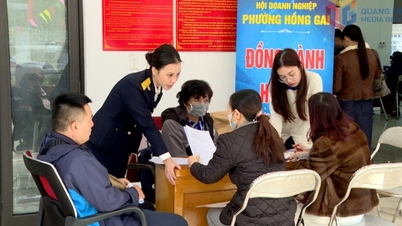












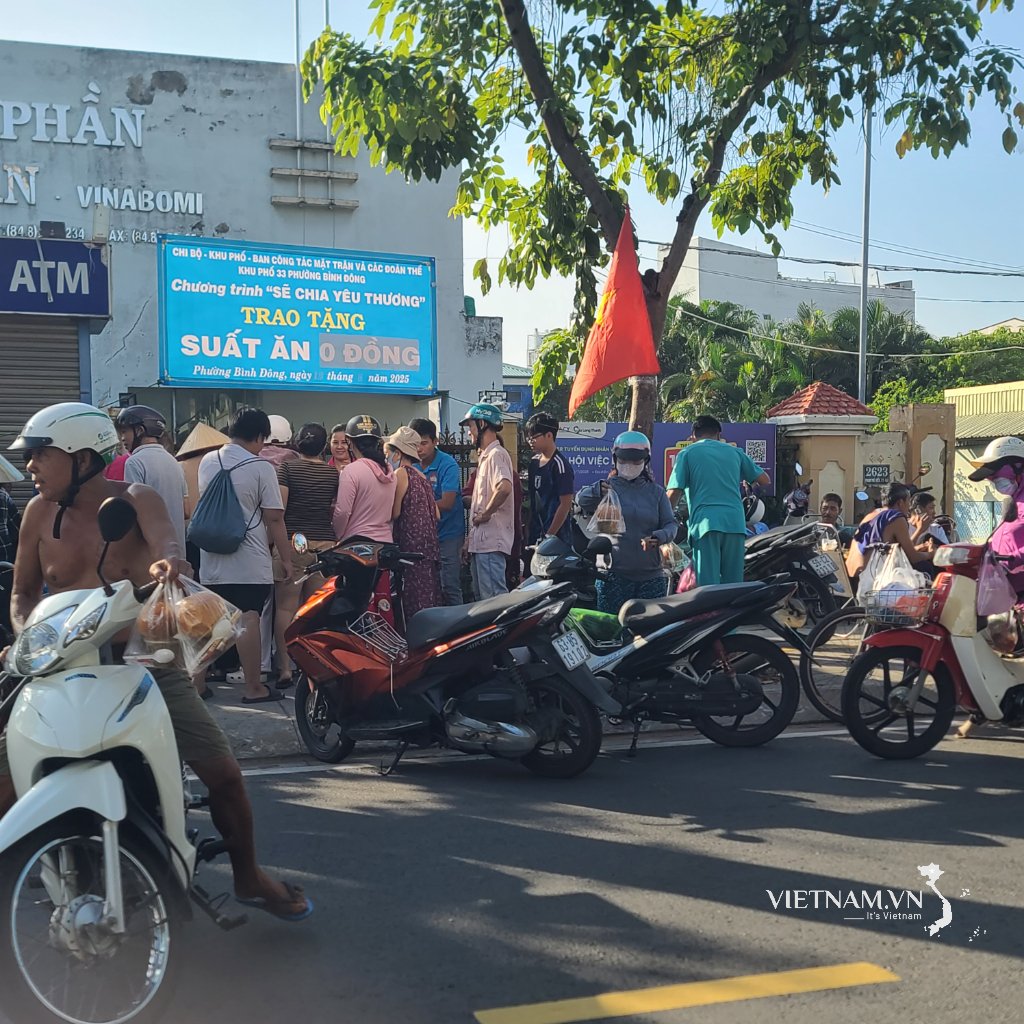





Comment (0)